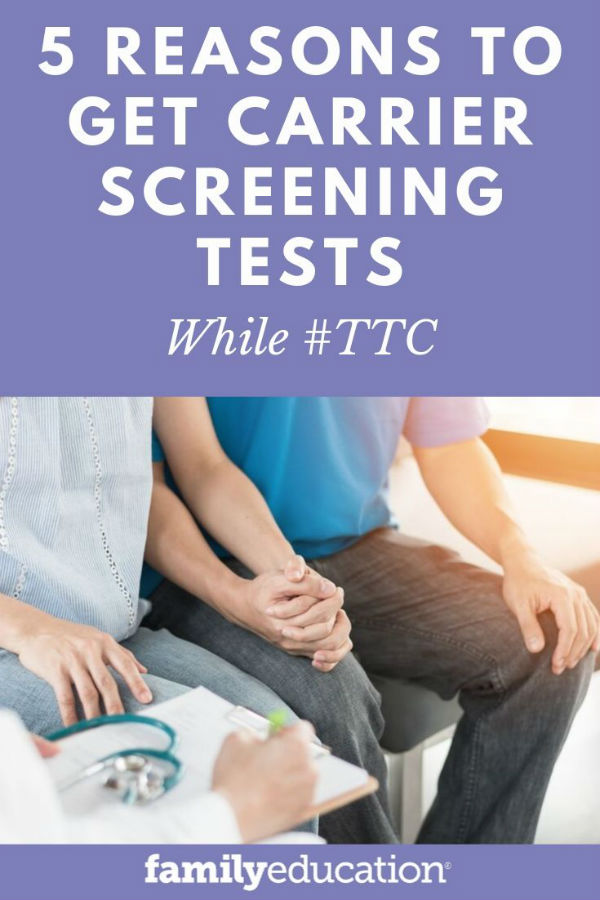5 Reasons to Get Carrier Screening Tests When TTC

If you have the time to be informed about your body, your expectations, and your options before pregnancy, would you? Well, great news! There are genetic screenings you can request when you decide you are ready to start #ttc.
With recent, “at home” genetic testing like 23andMe, humans are curious now more than ever about their background, their heritage, and the impacts those have on their future family. Understanding what genetic influences you might pass on to your child is at the top of most birthing people’s minds these days, but do you know what the screenings are all about?
More: TTC? 5 Things to Consider First
Don't have time to read now? Pin it for later:

What is a Carrier Screening Test?
A genetic test done before pregnancy to predict your chances of having a baby with a genetic condition. A “carrier” is someone who has one genetic variation for a condition that requires two meaning if both parents are carriers, the chance of having a child with a genetic disorder is significantly increased.
What are the reasons for getting a genetic carrier test?
- If you are a carrier for a specific genetic condition. A quick blood, saliva and tissue sample can give you great insight into what genetic influences you may pass on to your baby.
- If your partner is a carrier for a specific genetic condition. If the carrying parent does not test positive for genetic variations, the partner will not be tested.
- You may discover reproductive risks based in family history. This can be very helpful for expecting parents who do not have much knowledge of your own family tree.
- You are more informed of your choices and therefore have more control. Part of staying in control is understanding what the risks and benefits are, as well as your options for each risk and alternatives.
- What are the chances your baby will be impacted by a genetic variation? ACOG states that if both parents are a carrier of a recessive gene, then the baby stands a 25% chance of expressing the genetic condition.
What to expect from the screening procedure?
The screening will be a combination of a blood draw, saliva sample, and a tissue sample from your mouth (cheek). Carrier screening is available for a limited number of diseases, including cystic fibrosis, fragile X syndrome, sickle cell disease, and Tay–Sachs disease. Certain races or ethnic groups are at a higher risk of some diseases over others.
There is a targeted carrier screening which screens for racial/ethnic based variations. The other option is an expanded carrier screening which is a general screening regardless of your racial or ethnic background. You should have a discussion with your healthcare provider about the risks and benefits of each option.
Considering testing? Here’s How to Prepare for a Prenatal Genetic Counseling Session.
What are the risks?
You might discover that you, your partner, or both of you are carriers of something unexpected. While some people and personalities will absorb this information willfully and in stride, there are many folks that consider this a devastating blow. Both reactions and all emotions in between are valid. When you choose to request genetic testing, you must be mentally and emotionally prepared for any possible outcome.
What else should you know?
Just because you or your partner are a carrier, doesn’t mean your child will automatically be the recipient of whatever genetic variations is at hand. You will need to ask about the probability and the likelihood. You will want to know what are the chances that your baby is impacted. After you get those numbers (there might be a grieving or coping process, this is okay), you might want to explore your options such as alternative approaches to pregnancy/growing your family, options of confirming during pregnancy, and options if you decide the risk is too high.
You should also know you are entitled to make whatever choice is best for you and your partner. People will always have opinions, but those people don’t get to make choices for you. Your feelings are valid and the way your family grows is not an indicator of your worthiness as a parent.
TTC? Here’s What’s You Need to Know About Your Family Health History First.

